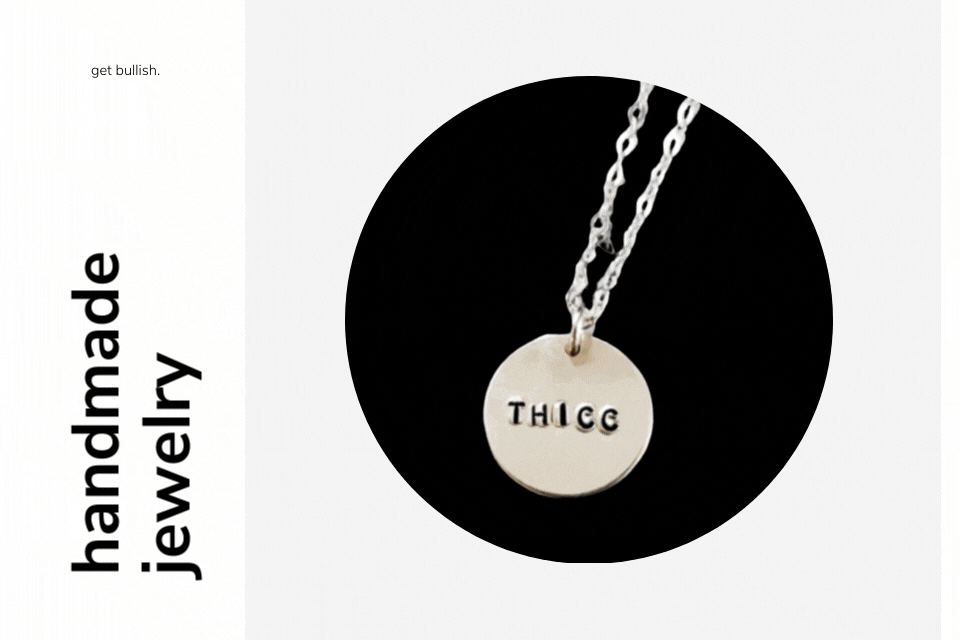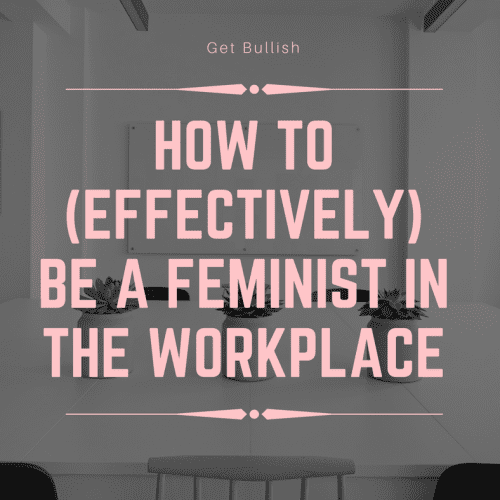Note: This piece was written when Bullish appeared on TheGloss, under the helm of Editor-in-Chief Jennifer Wright.
I have been informed that Jennifer Wright is giving up caffeine as a way to become more adult.
I don’t understand this, and fortunately I don’t work in the offices, so she can’t punch me (not that she’ll have the energy to, considering the lack of caffeine). Subsisting on only black coffee, croissants, and cigarettes seems very adult to me, if obviously unhealthy (see the Jean-Paul Sartre cookbook), because “healthy” is really not the same as “adult.”
In Bullish: Gentlewomen Don’t Crash Diet, I commented on people who put way too much emphasis on fitness for my taste. (Favorite hobby: Working out! Favorite book: PUMP IT UP YOU GO GIRL! Favorite song: WORK IT GIRL!). I think a constantly-peppy, exercise-based approach to life is … well, maybe just one of the totally normal ways that regular people live, but not a special claim to adulthood. Eating all the right foods on a special schedule also reminds me a little too much of toddlerhood. Worrying about that is the sort of job we assign to First Ladies, not Presidents. (No offense, Michelle. I’ll bet Michelle Obama gets even more awesome someone around 2016 when she can do whatever she wants.)
You know what I think is really fucking adult? Christopher Hitchens, dying of throat cancer, commenting that he doesn’t regret all the drinking and smoking that probably gave him cancer, because without the drinking and smoking, he wouldn’t have had the same life that allowed him to write all those books:
“All the time, I’ve felt that life is a wager and that I probably was getting more out of leading a bohemian existence as a writer than I would have if I didn’t,” he said in an interview that aired Friday. “Writing is what’s important to me, and anything that helps me do that — or enhances and prolongs and deepens and sometimes intensifies argument and conversation — is worth it to me. So I was knowingly taking a risk. I wouldn’t recommend it to others.”
And now he’s dead but we have the books. A life that causes people to thank you after you’re dead is probably a good indication that you lived in an adult manner.
When our undercaffeinated Editor-in-Chief informed the staff that TheGloss would be observing “Big Girl Badge Week,” Jamie Peck commented that many definitions of adulthood are “ridiculously classist.” (You might enjoy Bullish: The Things I Was Trying to Say to the Women of Dartmouth Before I Passed Out, in which I talk quite a bit about class). So, thanks to Jamie for making me think about that.
I certainly don’t think that adulthood exclusively means getting married and buying a house and having kids and a 401K. But as someone who met her fiancé via an OKCupid ad that specified, “Please be content with the fact that your youth is over,” I’m not at all willing to throw out the idea of adulthood entirely.
So, I’ve come up with some working guidelines on what it means to be an adult in modern society. I’m open to revisions. But I think I’ve got a little something here.
Adults are able to commit to something
…and keep doing it even when it makes them unhappy for awhile.
A 2009 study “followed 515 married patients with serious cases of cancer or multiple sclerosis for five years. The overall divorce or separation rate was 11.6 percent—not much different from the general population. But when couples did split, the patient was six times more likely to be a woman than a man.”
Statistically, I’m sure that in a few of those cases, the sick spouse was a total lying, cheating jerk before getting sick, and the couple was going to break up anyway. Cancer equally strikes decent people and total assholes. But running out on your cancer-stricken spouse is, in general, extremely non-adult.
Of course, I’m not just talking about marriage here. You know who is seriously adult? Hospice nurses who keep getting up every morning and going to work.
Sorry, that’s kind of dark, I guess. But you ask me about adulthood, I’m not going to write about finally “investing” in a Balenciaga trenchcoat.
Adults are willing and able to be responsible for someone other than themselves
Sure, one way to do that is by having kids (see Maybe Work-Life Balance Means You Should Work MORE for some thoughts on financial planning for motherhood). But this is by no means the only way.
I also think – cue totally biased personal opinion – that being responsible for others as part of one’s politics is a marker of adulthood.
I also think – cue totally biased personal opinion – that being responsible for others as part of one’s politics is a marker of adulthood.
So Ayn Rand doesn’t qualify in my book, sorry! That woman was a moral infant. (See Bullish: Actually, We’re All Kind of the 1% and click to page 2 if you just want to read the part wherein I have at Ayn Rand and also use the phrase “Fleshlight full of money.”)
Brief story: at high school debate camp, I did a project on libertarianism, entitled “Nozick, Friedman, and Hayek.” We could have a genuine intellectual debate about Hayek. But Nozick? Here is the sort of argument I found persuasive for one summer when I was 16: Imagine a totally just society. Now imagine that Wilt Chamberlain is a very good basketball player, so lots of people each give some money to watch him play basketball. Then Wilt Chamberlain has more than everyone else, but since all the transactions were consensual, THEREFORE ALL INCOME INEQUALITY IS OK.
Nozick never mentions the part where those people have kids and some of the kids don’t get to go to school or the doctor. (He also never touches on what happens when they guy who owns Wilt Chamberlain’s team actually gets most of the money, and he uses it to buy off politicians. Etc.) There’s also a bit about, “If you threw books I didn’t want through my window, I don’t have to pay you for them, even if I liked the books THEREFORE NO LIBRARIES.”
This is an excellent opportunity to link to Ezra Klein on Bloomberg:
Still, for my money, the worst of Romney’s comments were these: “My job is not to worry about those people. I’ll never convince them that they should take personal responsibility and care for their lives.”… The problem is that he doesn’t seem to realize how difficult it is to focus on college when you’re also working full time, how much planning it takes to reliably commute to work without a car, or the agonizing choices faced by families in which both parents work and a child falls ill.
The working poor haven’t abdicated responsibility for their lives. They’re drowning in it.
And from Olivia Ghafoerkhan on the We Represent the 47 Percent blog:
“I’m willing to pay more in taxes for hungry school kids, for Pell grants, for Medicaid, for food stamps. I am not willing to pay more in taxes so you can pay less. That is taking personal responsibility, Mitt.
Paying taxes, supporting programs that lift people out of poverty and allow them to pursue the American dream. Because your world, your wealth, is made possible because of that same dream.
You were right. You can’t teach those people, those 47%, about personal responsibility because you do not know about personal responsibility.”
So, yes, I think anyone who is part of the “I pulled myself up by my bootstraps (with the help of a lot of other white people and also roads and laws and functioning public utilities and stuff), so why should I be taxed for other people’s education and healthcare?” is not much of an adult.
Adults are able to make complicated moral judgments.
Einstein immeasurably moved science forward when he helped create the atomic bomb. He also, well … helped create the atomic bomb. Einstein considered himself a pacifist, and yet wrote a letter to Roosevelt recommending that the bomb be created. Even months before his death, he was ambivalent: “I made one great mistake in my life… when I signed the letter to President Roosevelt recommending that atom bombs be made; but there was some justification – the danger that the Germans would make them.”
That’s an adult fucking decision.
I’m not saying it was the correct decision. I’m saying it’s childish to refuse to do the math. Adults engage with difficult decisions and recognize that, in a world filled with evildoers, you sometimes have to use evil means towards good ends, to make allies with terrible people against more terrible people, and to get a little dirty, and develop a lingering sense of doubt and guilt that you carry with you always, because that’s what hard decisions are like.
I don’t respect people who refuse to acknowledge this. For instance:
Person I Don’t Respect: All war is wrong!
Me: What about saving entire populations from being raped and killed by genocidal warlords? What if the Nazis are going to completely take over Europe and kill basically everybody? Shouldn’t we go to war to stop them?
Person I Don’t Respect: Well, the Nazis shouldn’t do that. That’s also wrong.
Me: Yes. That’s what Nazis do: WRONG THINGS. You sound like a three year old. The only interesting moral questions to discuss are the ones where someone else has already broken the rules. THEN WHAT?!
I certainly think it’s possible that someone – not my straw man above – could seriously grapple with these questions and still end up a pacifist. I respect some pacifists. But not ones who refuse to even engage in decision making in a world in which there is no pure and perfect option. Sometimes pacifism means letting people die at the hands of tyrants. I only respect pacifists who will soberly discuss that and defend their beliefs in the face of that reality.
Adults are willing to make dirty, difficult decisions and carry ambivalence with them to the grave. This is also why many adults need to drink.
Adults accept the indifference of the universe to their small existence
I have written here — and in various articles about planning your career – about the universe’s indifference to us. “The universe doesn’t have a grand plan for you. Men in general certainly do not have a grand plan for you. Your company doesn’t have a grand plan for your career. No one is watching your back. Your parents probably love you very much, but they’re just watching from the sidelines at this point, and possibly offering up your childhood room rent-free in case you fail. There’s no master plan, no deus ex machina to tie up the loose ends, no poetic justice to make your pain meaningful.”
Let me return to Christopher Hitchens, who commented of his cancer diagnosis:
“To the dumb question ‘Why me?’ the cosmos barely bothers to return the reply: Why not?”
So, that’s my working definition of adulthood.
It’s noon and time for coffee, then scotch, then coffee again.
Originally published on The Gloss.











